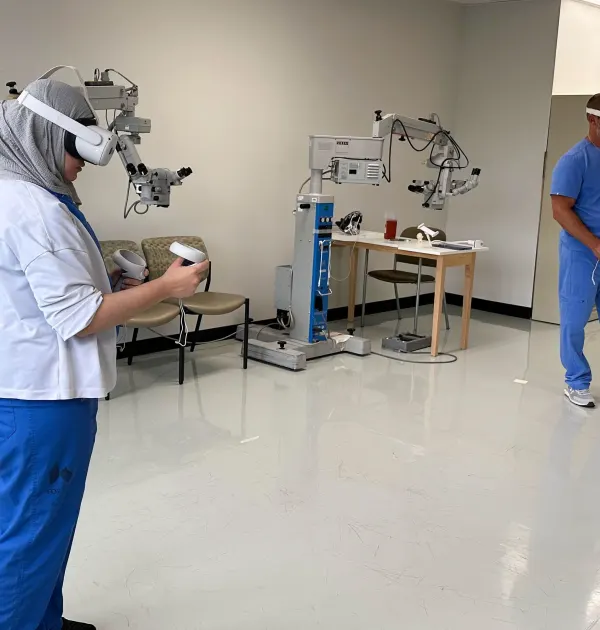Meta’s VR technology is helping to train surgeons

Last year, Dr. Jake Shine strapped on a virtual reality headset just days before assisting in his first shoulder replacement surgery.
In the VR lab of Kettering Health Dayton in Ohio, Shine stood with his attending physician, who would supervise the procedure as a third-year orthopedics resident.
As they walked through a 3D simulation of the surgery, both doctors wore Meta Quest 2 headsets. Reverse total shoulder arthroplasty can take around two hours and requires surgeons to carefully navigate around neurovascular structures and lungs.
Shine took his headset home to practice after the mock procedure. In the days leading up to the surgery, he did this roughly twice a day.
In an interview, Shine explained that you can fine-tune and learn what to do, as well as what not to do with no risk to the patient.
In the end, there were no complications during the procedure, and the patient recovered fully.
According to Shine, the process went more smoothly and faster than if the attending physician had to walk him through every step as he did in the VR.
Consumer VR remains a niche product and a money-burning venture for Meta CEO Mark Zuckerberg, but it is proving valuable in certain corners of health care. One of the ways Kettering Health Dayton helps doctors train on and treat patients is through emerging technologies like VR.
Extending reality includes VR headsets like the Quest 2 as well as augmented reality devices, where a digital overlay is displayed on top of the real world.
